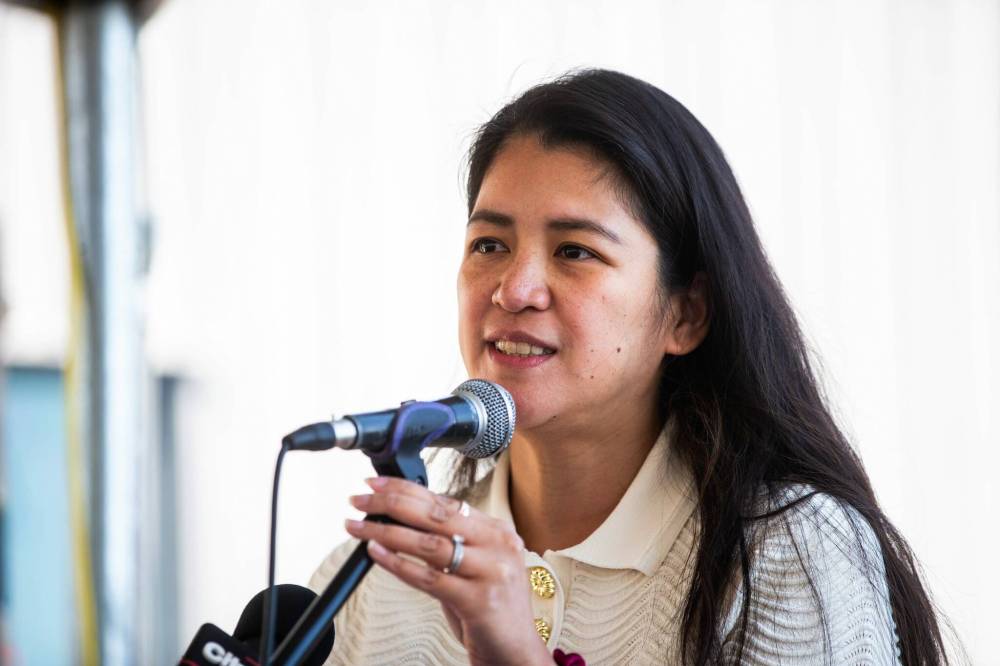Proposed law addresses psychological well-being of Manitoba workers
Advertisement
Read this article for free:
or
Already have an account? Log in here »
To continue reading, please subscribe:
Monthly Digital Subscription
$0 for the first 4 weeks*
- Enjoy unlimited reading on winnipegfreepress.com
- Read the E-Edition, our digital replica newspaper
- Access News Break, our award-winning app
- Play interactive puzzles
*No charge for 4 weeks then price increases to the regular rate of $19.95 plus GST every four weeks. Offer available to new and qualified returning subscribers only. Cancel any time.
Monthly Digital Subscription
$4.99/week*
- Enjoy unlimited reading on winnipegfreepress.com
- Read the E-Edition, our digital replica newspaper
- Access News Break, our award-winning app
- Play interactive puzzles
*Billed as $19.95 plus GST every four weeks. Cancel any time.
To continue reading, please subscribe:
Add Free Press access to your Brandon Sun subscription for only an additional
$1 for the first 4 weeks*
*Your next subscription payment will increase by $1.00 and you will be charged $16.99 plus GST for four weeks. After four weeks, your payment will increase to $23.99 plus GST every four weeks.
Read unlimited articles for free today:
or
Already have an account? Log in here »
Hey there, time traveller!
This article was published 12/03/2025 (304 days ago), so information in it may no longer be current.
Proposed legislation aims to make Manitoba a “trail blazer” in protecting and promoting the psychological well-being of workers.
“We know that this is a necessary thing to do,” said Labour Minister Malaya Marcelino.
The Workplace Safety and Health Amendment Act (Bill 29) would ensure that “active measures are undertaken to prevent harm, whether negligent, reckless or intentional, to the psychological well-being of workers.”

MIKAELA MACKENZIE / FREE PRESS FILES
Labour Minister Malaya Marcelino: “We know that this is a necessary thing to do.”
Marcelino said Manitoba will adopt the 2013 Canadian Standards Association definition of psychological safety in the workplace.
“We are going to be the first jurisdiction that will be doing this, so we will be trailblazers on this front,” she said about the bill that was introduced March 6.
Regulations will spell out the details of how employers can prevent psychological injuries at work. The legislation is based on consultation with a long list of employee safety representatives across Manitoba, the minister said, adding the government understands it will have to explain the issue.
“This is not about pre-existing kind of mental health conditions that a worker might have,” she said. “This is work-related.”
She gave the example of someone who works for the transportation department being the first on the scene of a fatal car crash, firefighters, nurses, paramedics, “maybe police officers that will and do suffer from workplace psychological injuries,” she said.
Most of the current psychological injury-related claims come from public-sector workers in health care and corrections, Marcelino said.
“As the government, as an employer, we will also have to do better in terms of preventing workplace psychological health-related injuries,” Marcelino said. “There is work to do right now. This is just a first step.”
The Manitoba Federation of Labour applauded the bill that would make employers responsible for preventing injuries to workers’ mental health on the job, just as they are responsible for preventing physical injuries.
“There’s long been a requirement for employers to take steps to protect workers from physical injuries,” federation president Kevin Rebeck said. “But we haven’t had a definition or clarity on what does it mean to keep someone’s psychological health safe.”
He said having a definition in the law would be a “foundational change that sets a greater expectation that that be part of a plan when you’re building your prevention methods to keep workers safe.”
It would create a greater expectation for what employers should think about or talk to workers about to ensure their environment is psychologically safe.
“No one deserves to be dealing with abuse or to be dealing with hostile situations,” Rebeck said.
A 2022 survey of Canadian Federation of Independent Business members showed that a significant proportion of employers and employees working in small businesses generally feel comfortable openly discussing their mental health and well-being, said Brianna Solberg, the regional director for legislative affairs.
“As a result, the majority of small business owners feel they are already providing support to their employees through flexible scheduling, a good work-life balance, and a positive, psychologically safe work environment,” Solberg said Wednesday.
The bill proposes new penalties for bad employers, including cracking down on employers that change their name to avoid consequences for putting worker safety at risk.
“We have heard from some business owners who are supportive of a crackdown from government to help penalize bad actors in their industries,” Solberg said.
Labour unions also see the need for the crackdown.
“We do know in the construction industry, in particular, there are certainly instances where small shops set up and work for awhile and when they’re called to task or facing fines from health and safety, they close up,” said Rebeck.
“Those same employers reopen businesses under a different name and continue doing work in the industry. This will prevent them from just changing names to avoid kind of being followed and tracked that way.”
carol.sanders@freepress.mb.ca

Carol Sanders
Legislature reporter
Carol Sanders is a reporter at the Free Press legislature bureau. The former general assignment reporter and copy editor joined the paper in 1997. Read more about Carol.
Every piece of reporting Carol produces is reviewed by an editing team before it is posted online or published in print — part of the Free Press‘s tradition, since 1872, of producing reliable independent journalism. Read more about Free Press’s history and mandate, and learn how our newsroom operates.
Our newsroom depends on a growing audience of readers to power our journalism. If you are not a paid reader, please consider becoming a subscriber.
Our newsroom depends on its audience of readers to power our journalism. Thank you for your support.


